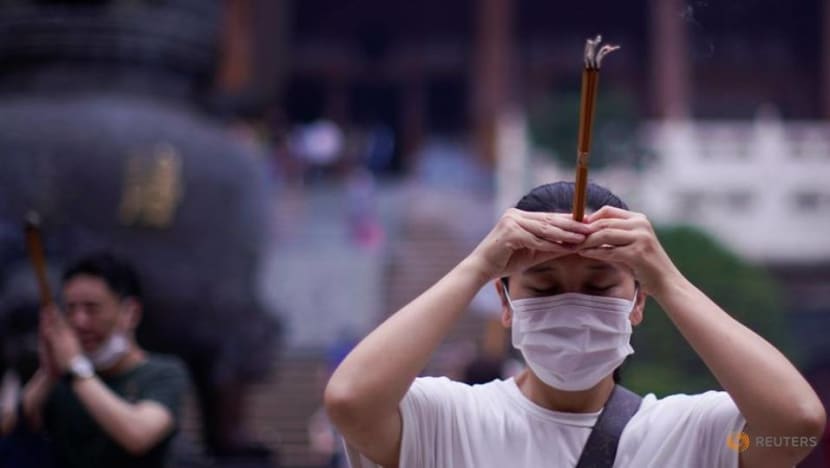Chinese court tells Dutch collector to return Buddha statue

People wearing face masks worship at the Buddhist Jing-an Temple in Shanghai as it reopens following the COVID-19 outbreak in China. (Photo: Reuters/Aly Song)
BEIJING: A Chinese court has ordered a Dutch art collector to hand over a Buddha statue in the latest twist in a three-year-old legal battle with villagers who say it was stolen from a temple.
Residents of Yangchun, a village in the southeastern province of Fujian, say the statue is a thousand-year-old relic that holds the mummified remains of a monk and disappeared in 1995.
The collector says he bought the object in Hong Kong in 1996 but denied it was the stolen statue.
The ruling Communist Party is stepping up efforts to retrieve Chinese art and artefacts that are believed to be stolen and in foreign hands.
READ: 700-year-old Chinese scroll sells for US$41.8 million in Hong Kong
The Sanming Intermediate People’s Court on Friday (Dec 4) ordered the collector, Oscar van Overeem, to return the statue within 30 days, the official Xinhua News Agency reported.
Two committees representing villagers sued in a Dutch court in 2017, but judges ruled the following year they did not count as legal entities that could make a claim.
Friday's ruling found the temple and its relics were collectively owned by the villages of Yangchun and Dongpu, giving residents the right as a group to demand the statue's return, according to Xinhua.
The villagers say the missing statue contains the remains of Zhang Gong Zhushi, or Patriarch Zhang Gong, who became famous for helping to treat diseases during the Song Dynasty.
Villagers say they traced the missing statue to the Dutch collector after it appeared in an exhibition in Hungary in 2015, according to Xinhua.
After negotiations with the collector broke down, they filed suit, citing Dutch law that prohibits ownership of a body of a person whose identity is known.










